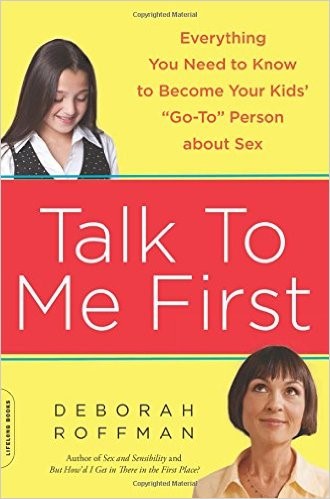Having Sex: Intimacy and Emotions
[AMZ-134]
Youth
Mood swings—when a person’s feelings change quickly and might feel very intense—are a normal part of puberty. You might feel moody, crabby or even suddenly want to cry and then feel fine or happy. These mood swings are often caused by hormones, and they are totally normal while you’re going through puberty.
FAQs
Mood swings are when a person’s mood changes very quickly. That can include going from one extreme (like angry) to another extreme (like happy). These shifts in mood can happen quickly and feel intense. Mood swings are a normal part of puberty. It’s important to be patient with yourself and others who might be experiencing mood swings.
During puberty, the process in which a person grows into an adult, the brain starts to make a lot more hormones. Hormones are the body’s chemical signals that tell certain body parts to grow, and they also affect the part of the brain that manages feelings or moods. This increase in hormones can often lead to mood swings. This is all perfectly normal and tends to even out once a person is done with the changes of puberty.
Experiencing mood swings can be exhausting. So it’s good to keep in mind that mood swings are a perfectly normal part of puberty and growing up. Talking about your feelings with friends and trusted adults can help, as can remembering that you’re not alone in dealing with mood swings. Almost everyone going through puberty will deal with mood swings at some point or another.
If you ever feel sad for most of the time, then it’s good to talk with a trusted adult or a counselor to check for something called depression. Depression is when someone feels sad most or all of the time. There are ways to help people experiencing it, so it’s important to ask for help.
Parents
During puberty, young people experience many physical and emotional changes as they pass from childhood into adulthood. Many of these changes are a result of hormones, the chemicals in a person’s body that communicate to certain body parts how to grow and change. Hormones play an important role during puberty, and it’s normal for young people’s bodies to go through lots of hormonal fluctuations while they’re growing up.
Mood swings—the quick change of a person’s feelings, sometimes from one extreme to the next—are often the result of increases in certain hormones. This is because hormones affect the limbic system in the brain, the area that controls the regulation of feelings. So young people might be really excited and happy one minute and then feel angry and upset another. Sometimes it can feel like the smallest thing can trigger an intense response from a young person going through puberty. This is all normal due to the new levels of hormones in the body.
CONVERSATION STARTERS
You can use the following conversation starters to help normalize some of the physical and emotional changes your child is going through and to start conversations with them about their feelings and any mood swings they may be experiencing:
Maybe this person was grumpy or sad and then suddenly happy or fine. What was it like?
How could a person dealing with mood swings manage those big changes in their feelings? What are some specific ways you could be a good friend to someone who is dealing with mood swings?
Educators
During puberty, young people experience many physical and emotional changes as they pass from childhood into adulthood. Many of these changes are a result of hormones, the chemicals in a person’s body that communicate to certain body parts how to grow and change. Hormones play an important role during puberty, and it’s normal for young people’s bodies to go through lots of hormonal fluctuations while they’re growing up.
Mood swings—the quick change of a person’s feelings, sometimes from one extreme to the next—are often the result of increases in certain hormones. This is because hormones affect the limbic system in the brain, the area that controls the regulation of feelings. So young people might be really excited and happy one minute and then feel angry and upset another. Sometimes it can feel like the smallest thing can trigger an intense response from a young person going through puberty. This is all normal due to the new levels of hormones in the body.
National Sex Education Standards
Explain the physical, social, and emotional changes that occur during puberty and adolescence and how the onset and progression of puberty can vary
Identify trusted adults, including parents, caregivers, and health care professionals, whom students can ask questions about puberty and adolescent health
International Technical Guidance on Sexuality Education
Discussion Questions
- What are two new things you learned from the video?
- How can people sometimes miscommunicate via texting and social media? If a person is having mood swings, how could their feelings affect communication on social media?
- Young people can talk to a counselor at school if they are worried about their feelings or feeling sad a lot of the time, which could be something called depression. In addition to a school counselor, what other kinds of trusted adults could a young person talk to about this topic?




